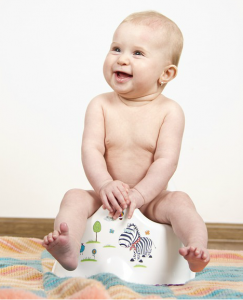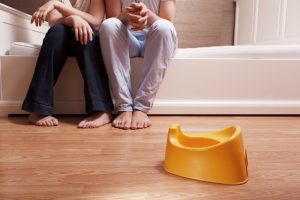Toilet training is an area of normal child development that causes anxiety for many families. However, when a child has a disability it is an even bigger hurdle for parents and carers, although the children, particularly those with learning or sensory disabilities, are not usually concerned.
Often families are advised that they should not worry about toilet training until the child appears to be ready for this stage of learning. However, there is no clear definition of what is meant by ‘being ready’. There are some signs that are quoted, such as knowing when their nappy needs changing, asking to wear normal pants, or asking for the toilet. Children do not often reach this stage by themselves and many will not understand that they should be doing something different from what they have been doing since they were born. For many, signs of readiness for toilet training are not present until the children have actually started a toilet training programme.

What we suggest
At Bladder & Bowel UK, we suggest that toilet training should be started early for most children, including those with disabilities. To toilet train a child needs to learn a set of skills including communicating the need to go, managing their clothes and learning to sit on the toilet or potty. With appropriate support children can start to learn these skills from their second year. Toilet training does not necessarily get easier as children get older – it might get more difficult if they don’t see why they need to change something that is working well for them.
If toilet training is delayed, for whatever reason, children should be offered assessment to ensure that their bladder and bowel are healthy. Children with disabilities are more prone to constipation, which may in turn cause bladder problems. Without assessment these problems may be missed.
Further support

For children who need assistance with using the toilet or who need to be changed, there are disabled toilets in the community, which have more space, privacy and are quieter than public toilets. Most of these are part of the National Key Scheme and can be accessed independently by people with disabilities who have a RADAR key. Keys can be purchased from Disability Rights UK. There are also toilets with adult-sized hoists and changing beds. These are known as Changing Places. To see a full list of these visit their website.
Speak to your child’s health care professional if you are concerned about your child’s toilet training or would like support. There is also information about toilet training on the Bladder and Bowel UK website available here.
You may also contact our confidential helpline at email: bbuk@disabledliving.co.uk or on telephone number 0161 214 4591.



Comments are closed